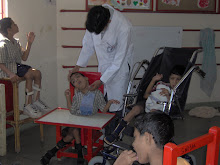
Patients already receiving antibiotics. If a patient is already receiving chronic antibiotic therapy with an antibiotic that is also recommended for IE prophylaxis for a dental procedure, it is prudent to select an antibiotic from a different class rather than to increase the dosage of the current antibiotic. For example, antibiotic regimens used to prevent the recurrence of acute rheumatic fever are administered in dosages lower than those recommended for the prevention of IE. Patients who take an oral penicillin for secondary prevention of rheumatic fever or for other purposes are likely to have viridans group streptococci in their oral cavity that are relatively resistant to penicillin or amoxicillin. In such cases, the provider should select either clindamycin, azithromycin or clarithromycin for IE prophylaxis for a dental procedure, but only for patients shown in Box 3![]() . Because of possible cross-resistance of viridans group streptococci with cephalosporins, this class of antibiotics should be avoided. If possible, it would be preferable to delay a dental procedure until at least 10 days after completion of the antibiotic therapy. This may allow time for the usual oral flora to be re-established.
. Because of possible cross-resistance of viridans group streptococci with cephalosporins, this class of antibiotics should be avoided. If possible, it would be preferable to delay a dental procedure until at least 10 days after completion of the antibiotic therapy. This may allow time for the usual oral flora to be re-established.
Patients receiving parenteral antibiotic therapy for IE may require dental procedures during antimicrobial therapy, particularly if subsequent cardiac valve replacement surgery is anticipated. In these cases, the parenteral antibiotic therapy for IE should be continued and the timing of the dosage adjusted to be administered 30 to 60 minutes before the dental procedure. This parenteral antimicrobial therapy is administered in such high doses that the high concentration would overcome any possible low-level resistance developed among mouth flora (unlike the concentrationthat would occur after oral administration).
Patients who receive anticoagulants. Intramuscular injections for IE prophylaxis should be avoided in patients who are receiving anticoagulant therapy (Class I, LOE A). In these circumstances, orally administered regimens should be given whenever possible. Intravenously administered antibiotics should be used for patients who are unable to tolerate or absorb oral medications.
Patients who undergo cardiac surgery. A careful dental evaluation is recommended so that required dental treatment may be completed whenever possible before cardiac valve surgery or replacement or repair of CHD. Such measures may decrease the incidence of late PVE caused by viridans group streptococci.









No comments:
Post a Comment